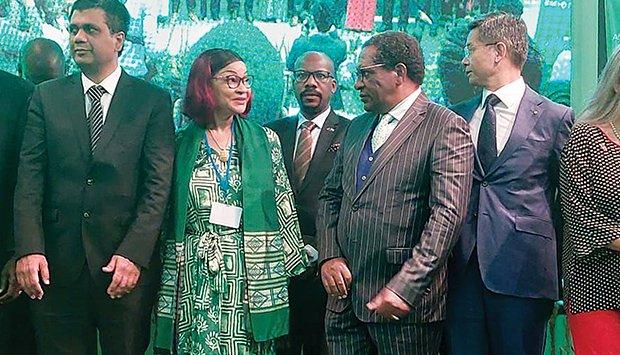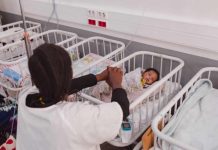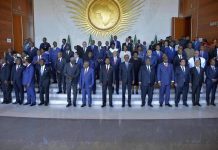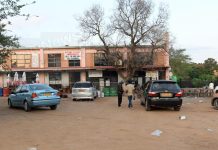Africa-Press – Botswana. From the 2nd to the 4th of September, the city of Libreville (Gabon) hosts the 15th and 19th sessions of the Parties to the Convention on International Trade in Endangered Species of Wild Fauna and Flora (CITES) and the Convention on Biological Diversity (CBD).
During the event, experts linked to biodiversity will debate topics of common interest, namely illegal exploitation and trade in wild fauna and flora, consequences, strategy to contain such acts and investments.
The African Union Commissioner for Agriculture, Rural Development, Blue Economy and Sustainable Environment, the Angolan Josefa Sacko considered that “Africa is the continent of the future”, as it harbors an exceptional biological diversity, although it is the second lung of the planet in terms of absorption of carbon.
Speaking at the second meeting of African negotiators, the diplomat said that, although there are environmental assets, namely the Congo Basin forestry bloc, and with a younger world population on the planet, Africa has an obligation to better manage natural resources, with with a view to sustainable development, so as to bequeath to future generations a rich heritage.
He made it known that many African countries have this dividend as a means of subsistence and that the socio-economic development of communities in rural and urban areas are highly dependent on the use of wild fauna and flora.
The loss of African fauna and flora directly and indirectly affects people’s livelihoods, underlined Josefa Sacko, adding that, in addition, the illicit trade in Africa’s natural resources deprives its States of revenue, hampering economic growth.
“The African Union remains aware of the unsustainable use of wild fauna and flora and the strong growth of illegal trade in recent years, holding back sustainable development, peace, security, rule of law and good governance,” he emphasized.
To contain this evil, he said, the AU adopted, at the 25th and 27th ordinary sessions of the Executive Council, respectively, the development of an African strategy on the fight against illegal exploitation and illegal trade in wild fauna and flora, and endorsed the Declaration de Brazzaville of the International Conference on this phenomenon.
“To achieve the essential objectives of Agenda 2063 and the sustainability of our continent, we need to be united and speak with one voice to the world. We must, therefore, foster the spirit of consensus to reach a common position”, he defended.
Josefa Sacko recalled that international agreements are closely intertwined and have an impact on the well-being of indigenous peoples and communities on the continent, because “these peoples are witnesses to the preservation of our environment”.
Implementation of the Paris Agreement
The African Union Commissioner for Agriculture, Rural Development, Blue Economy and Environment defended, on Monday, in Libreville, the implementation of the Paris Agreement, with the increase of concessional financing for the adaptation of climate resilience.
Josefa Sacko, who was speaking on the occasion of the official opening of this year’s Africa Climate Week, said that the continent remains strongly committed to the global fight against climate change, with all countries ratifying the Paris Agreement and setting targets on their nationally determined contributions.
The Angolan diplomat made it known that the Glasgow Climate Pact renewed the spirit of the Paris Agreement on several fronts, with developed countries committing to double their funding by 2025.
“We remain with unresolved issues from Glasgow, in particular the recognition of special needs and circumstances for Africa. It is our expectation that deliberations on this issue and on damages will be advanced at COP 27 in Sham el Sheikh”, he emphasized.
To support the efforts to implement the Paris Agreement, the African Union adopted, during the Summit of Heads of State and Government, in February this year, an operational strategy that contains the green recovery action plan and meteorological and climate services.
For More News And Analysis About Botswana Follow Africa-Press






